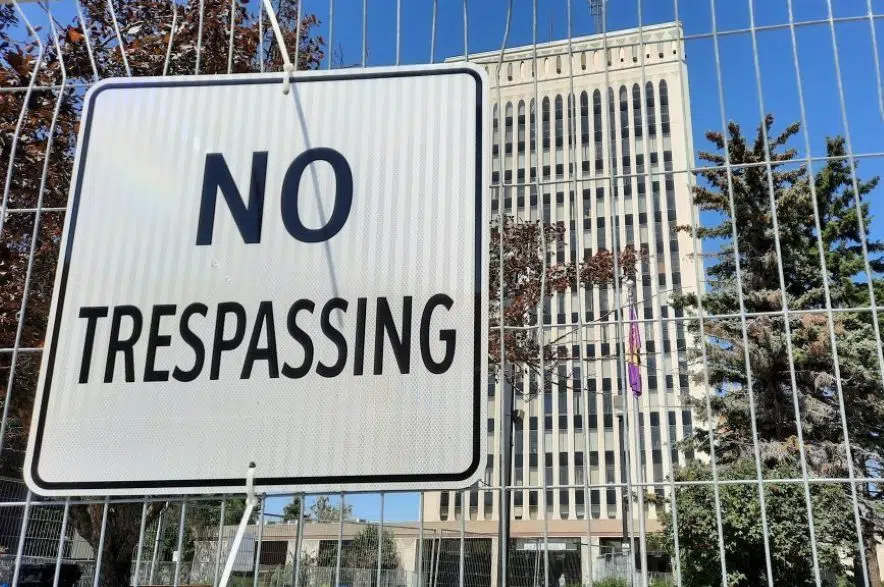The grounds in front of Regina City Hall repaired themselves, according to Niki Anderson, the city manager.
“The green spaces on the City Hall Courtyard are safe and clean and they are now open to the public,” Anderson said, hours after the fencing was removed on Thursday.
In August, Mayor Sandra Masters said the fences could remain up until spring because the grounds were “quite polluted” after a homeless camp temporarily took over the area.
The mayor estimated that the cleanup could cost around $60,000.
Anderson said the city won’t know until the spring if more restoration efforts will be required, but she thinks it’s unlikely.
The fences went up in late July, after the encampment in front of city hall was dismantled by police.
The fences were up for exactly two months, that price tag came in at $4,600.
Additional cleaning on the grounds added to that cost, but the main expense was the fencing itself.

Niki Anderson is confident the fences put up around the city hall courtyard saved them a lot of money. (Nicole Garn/980 CJME)
Anderson said city staff have also established that the courtyard is a park after debating the definition in July.
That means the city is now enforcing its parks and open spaces bylaw on the grounds. That bylaw prohibits the establishment or management of a camp.
Anderson said the city is prepared to enforce the bylaw, but hopes the public will voluntarily comply.
The city manager said security and bylaw enforcers will be available 24 hours a day for enforcement, but didn’t confirm if this meant they’d be physically patrolling the grounds at all times.
As for the grounds themselves, Anderson said there was damage nearly everywhere due to the number of people.
“Everywhere that the tents were, there was damaged grass. There was feces, needles, general garbage, tents, clothing and, frankly, there was just lots of people walking on it,” she said.
Anderson said she checked in with park staff weekly to inquire if there was still need to keep the fence up.
Due to time and some rain, Anderson the grounds seemed to have repaired themselves, and park staff said the fencing could come down.
“When they told me that last week, I wasn’t going to keep the fences up. There was no reason to do that,” she said.
As for if the grounds were considered a bio-hazard, she said she was unsure of the definition, but noted that the lawn was littered with urine, feces, needles and blood.
“I would say that there were things in the area that we wouldn’t allow for public space until it was cleaned up,” she said.











